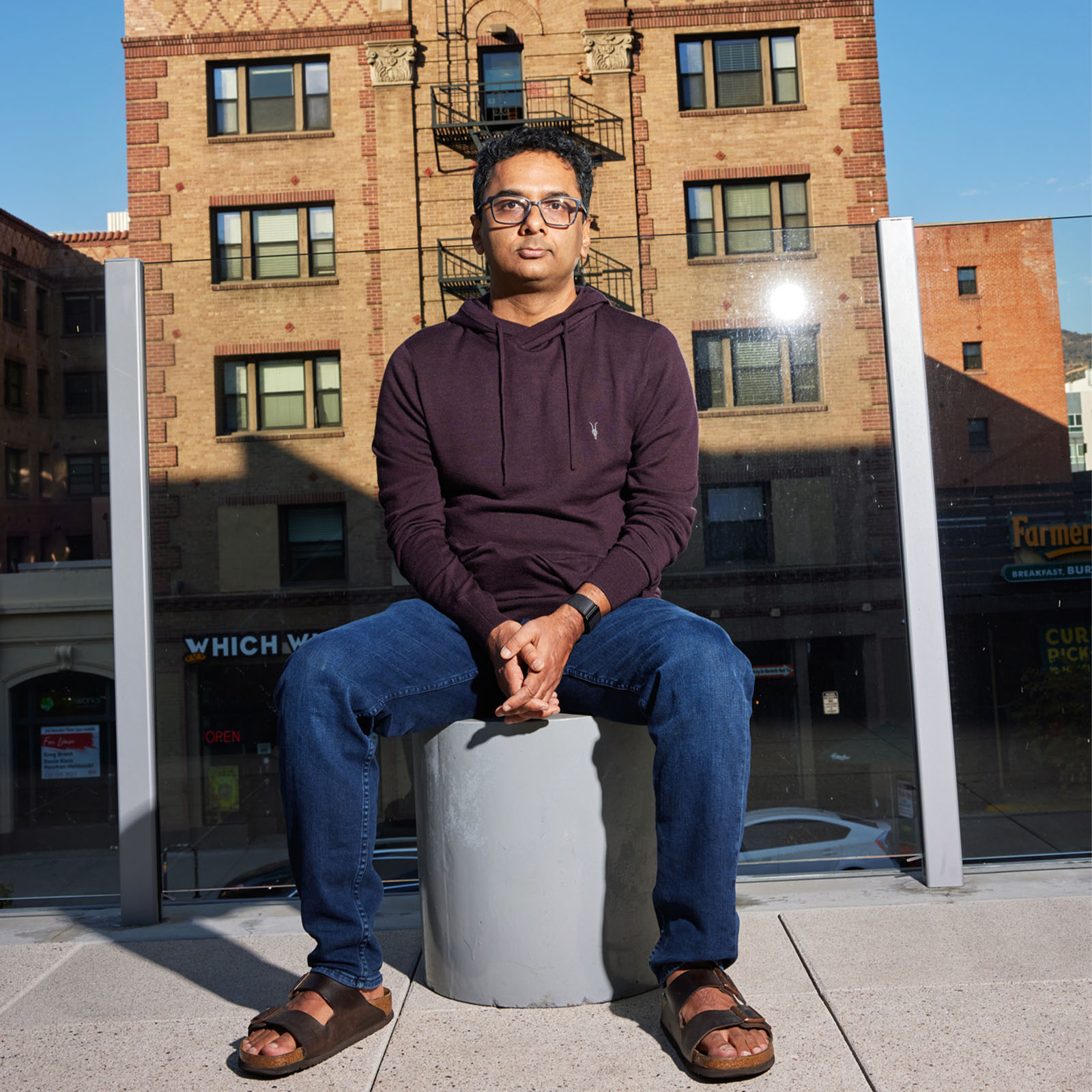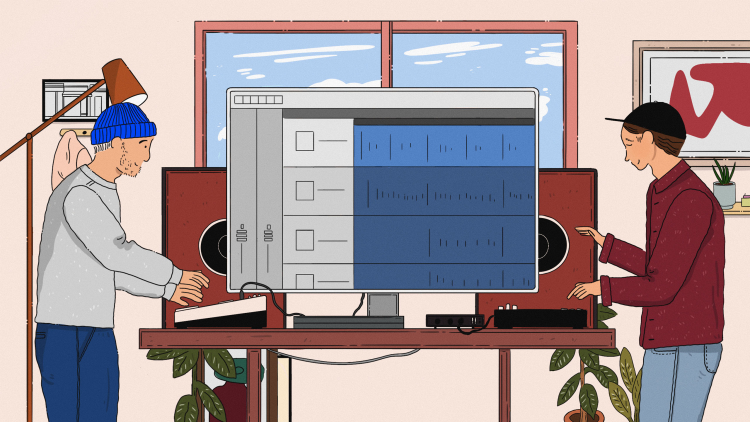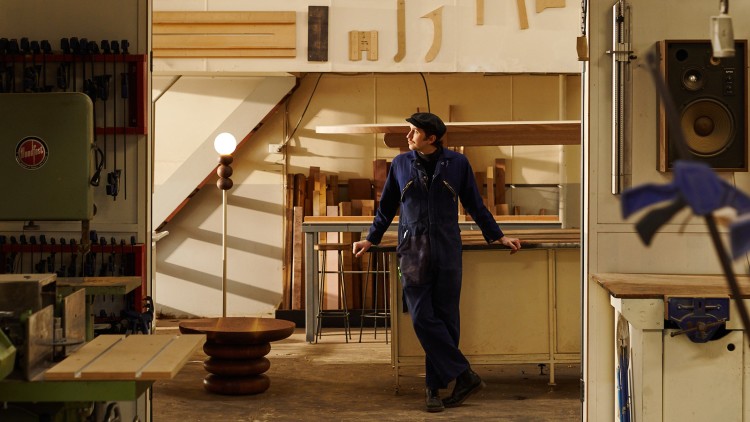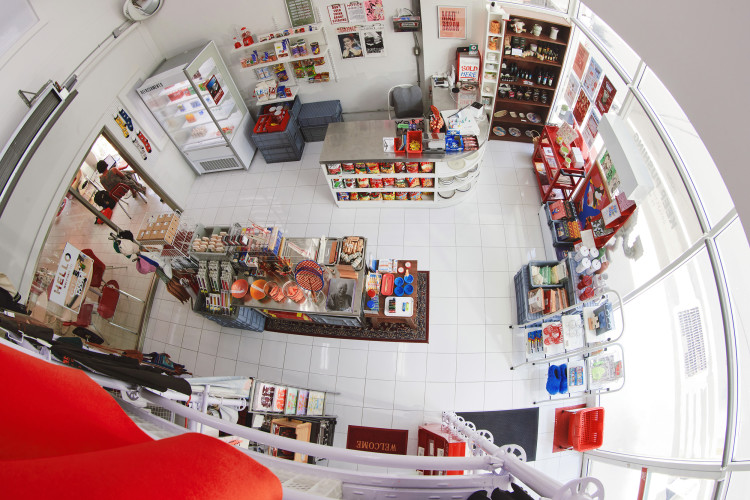
Even though musicians collaborate online as often – if not more so – than their corporate counterparts, they've been largely ignored by the software world. Musicians and producers make projects happen through a patchwork of apps – SoundCloud, WhatsApp, Dropbox – often leading to lost files, delayed projects and miscommunication, adding another challenge to an already precarious industry.
Ben Bowler hopes to help creatives solve that problem with Aux, a desktop app that allows musicians to store and share their work while keeping every version in one place. The tech consolidates digital workspaces with some nifty features – Aux says the upload speed is double that of WeTransfer and it offers 10GB of free storage – but Ben also has a larger vision of using emerging AI to help independent artists build careers and bypass industry gatekeepers.
‘It's quite common for people without that interest [in music] to come in and try to extract resources from the industry,’ says Ben. ‘My approach has come from my position as a musician and creator first.’
From DJ to app developer
Aux was born out of a need Ben recognized among his fellow musicians to streamline the creative process: his dad is a jazz-funk arranger and musician who trained Ben from the age of three to be a jazz-funk drummer. As a teenager, Ben found a way to rebel – by getting into drum and bass, dubstep, electronic music and DJing.
At the same time, he was experimenting and developing products that combined music and technology. His first startup, Chew, a live-streaming community for DJs, was acquired after amassing hundreds of thousands of users. He later built and sold StreamOn, a browser-based live-streaming platform.
But it was while sitting with a musician friend in the studio, watching him work with people from around the world and switching between apps, that the spark for Aux hit. ‘I wanted to take the best bits from these tools and make a centralized platform where you can manage your music projects, share them with your collaborators, track versions and keep things all in one place.’
His focus is on supporting independent artists to release work without needing a label or manager to stay on top of things. Aux organizes files with the help of AI, leaving musicians to focus on finessing their tracks. ‘It's subtly organizing things for you differently. Without you knowing it, it's helping you to be organized, which is one of the interesting USPs that's developed over time. We're an organizing force in creative people's lives.’
Going global
Looking forward, Ben wants to use AI further to connect collaborators. After speaking to users based in remote places – like towns in middle America with no music scene – he realized that many talented people didn't have other musicians or producers to work with. Now, with the help of AI, Aux will make a private profile based on pre-released tracks and recommend three to six artists anywhere in the world who are making similar music. It encourages and enables collaboration and creativity for people who aren't living in places with strong music scenes, growing a kind of ‘virtual international scene’, says Ben.
Aux has gained more than 55,000 users since its beta launch in 2021, with its most active users in Berlin, Stockholm and London – Ben knows of collaborators who work together between Leeds and Los Angeles, with a distance of 5,000 miles and an eight-hour time difference.
‘I've always been figuring out tools and software to make things easy. There's an interesting crossover between music and technology,’ says Ben. Of course, that crossover isn't often beneficial to the artist. When it comes to streaming, artists get the short end of the stick, especially financially.
Next up, Ben hopes that Aux can help artists beyond just organization, with an upcoming direct-to-fan platform that'll allow artists to sell subscriptions, merchandise and music to their fans directly. ‘We want to go back to a direct support model,’ says Ben. ‘There's a lot to be said for having a small fan base that's engaged and will support you.’



